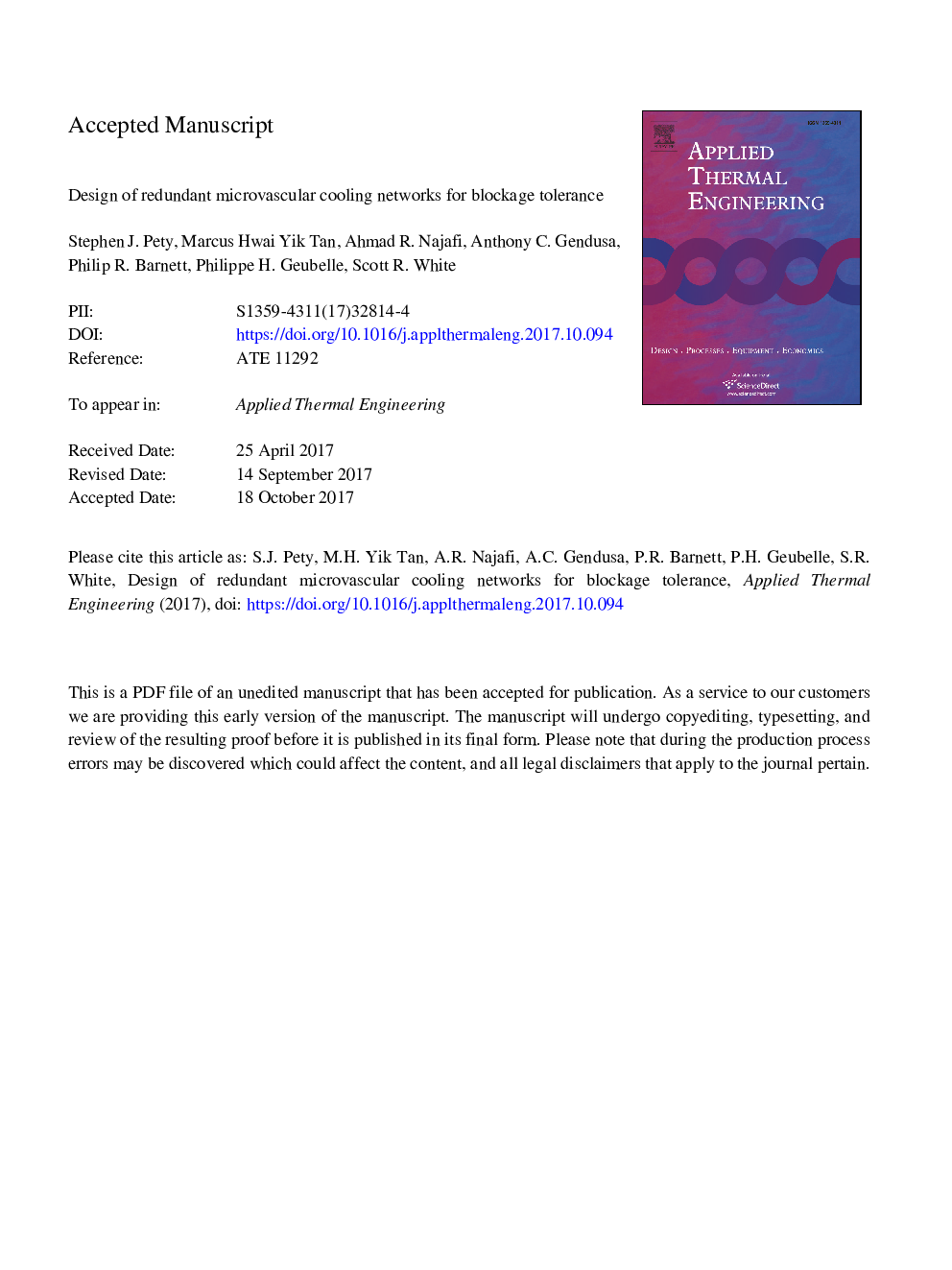| کد مقاله | کد نشریه | سال انتشار | مقاله انگلیسی | نسخه تمام متن |
|---|---|---|---|---|
| 7046298 | 1457098 | 2018 | 31 صفحه PDF | دانلود رایگان |
عنوان انگلیسی مقاله ISI
Design of redundant microvascular cooling networks for blockage tolerance
ترجمه فارسی عنوان
طراحی شبکه های خنک کننده میکرو مغناطیسی برای تحمل انسداد
دانلود مقاله + سفارش ترجمه
دانلود مقاله ISI انگلیسی
رایگان برای ایرانیان
کلمات کلیدی
کامپوزیت های میکروواسکولار، بهینه سازی، افزونگی، تحمل انسداد،
موضوعات مرتبط
مهندسی و علوم پایه
مهندسی شیمی
جریان سیال و فرایندهای انتقال
چکیده انگلیسی
Microvascular networks can provide host materials with many functions including self-healing and active cooling. However, vascular networks are susceptible to blockage which can dramatically reduce their functional performance. A novel optimization scheme is presented to design networks that provide sufficient cooling capacity even when partially blocked. Microvascular polydimethylsiloxane (PDMS) panels subject to a 2000â¯Wâ¯mâ2 applied heat flux and 28.2â¯mLâ¯minâ1 coolant flow rate are simulated using dimensionally reduced thermal and hydraulic models and an interface-enriched generalized finite element method (IGFEM). Channel networks are optimized to minimize panel temperature while the channels are either clear (the O0 scheme), subject to the single worst-case blockage (O1), or subject to two worst-case blockages (O2). Designs are optimized with nodal degree (a measure of redundancy) ranging from 2 to 6. The results show that blockage tolerance is greatly enhanced for panels optimized while considering blockages and for panels with higher nodal degree. For example, the 6-degree O1 design only has a temperature rise of 7â¯Â°C when a single channel is blocked, compared to a 35â¯Â°C rise for the 2-degree O0 design. Thermography experiments on PDMS panels validate the IGFEM solver and the blockage tolerance of optimized panels.
ناشر
Database: Elsevier - ScienceDirect (ساینس دایرکت)
Journal: Applied Thermal Engineering - Volume 131, 25 February 2018, Pages 965-976
Journal: Applied Thermal Engineering - Volume 131, 25 February 2018, Pages 965-976
نویسندگان
Stephen J. Pety, Marcus Hwai Yik Tan, Ahmad R. Najafi, Anthony C. Gendusa, Philip R. Barnett, Philippe H. Geubelle, Scott R. White,
